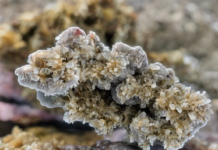Are you looking to add more color and variety to your fruit intake? Yellow fruits not only add a vibrant pop of color to your plate but also offer a range of health benefits. From providing a rich source of vitamins and antioxidants to adding sweetness and tanginess to your palate, yellow fruits are a delicious and nutritious addition to your diet. In this post, we will explore the top 5 yellow fruits that you must try.
1. Bananas**
Bananas are one of the most popular yellow fruits around the world. They are packed with essential nutrients such as potassium, fiber, vitamin C, and vitamin B6. Bananas are a convenient, energy-boosting snack that can be enjoyed on the go. They also make a great addition to smoothies, oatmeal, or baked goods.
2. Mangoes**
Mangoes are known for their sweet and tropical flavor. They are rich in vitamin A, vitamin C, and dietary fiber. Mangoes can be eaten on their own, added to fruit salads, smoothies, or used in both sweet and savory dishes. They are also a great source of antioxidants.
3. Pineapples**
Pineapples are a juicy and refreshing tropical fruit with a sweet and tart taste. They are an excellent source of vitamin C and manganese. Pineapples contain enzymes that may aid digestion and help reduce inflammation. Enjoy pineapples on their own, in fruit kebabs, or as part of a salsa for grilled dishes.
4. Yellow Apples**
Yellow apples such as Golden Delicious or Honeycrisp are crisp and sweet fruits that are rich in antioxidants and dietary fiber. They make for a perfect portable snack and can be sliced and dipped in nut butter or added to salads for a sweet crunch.
5. Yellow Kiwifruit**
Yellow kiwifruit, also known as gold kiwi, is a tropical and tangy fruit. It is a great source of vitamin C, vitamin E, potassium, and fiber. Yellow kiwifruit has a smooth skin and a vibrant yellow flesh. Enjoy it on its own, in fruit salads, or blended into smoothies for a nutrient-packed treat.
Incorporating a variety of yellow fruits into your diet can provide a range of health benefits, including immune support, heart health, digestive health, and skin health. Experiment with different ways of enjoying these fruits to discover your favorite flavors and combinations.
FAQs
1. Are yellow fruits healthier than fruits of other colors?
Each color of fruit offers a unique set of nutrients and health benefits. Yellow fruits tend to be high in vitamin C, antioxidants, and fiber, making them a valuable addition to a balanced diet.
2. Can I eat yellow fruits if I am on a low-sugar diet?
While some yellow fruits like bananas and mangoes are higher in natural sugars, they also provide essential nutrients. It’s best to consume them in moderation and balance them with lower-sugar fruits and vegetables.
3. Are canned yellow fruits as nutritious as fresh ones?
Fresh fruits are generally preferable as they retain more of their nutrients and flavor. Canned fruits may contain added sugars or syrups, so opt for canned fruits in natural juice or water and drain before consuming.
4. How can I incorporate more yellow fruits into my daily meals?
Add sliced bananas to your morning cereal, blend mangoes into a smoothie, top your salads with diced pineapple, snack on yellow apples with nut butter, or enjoy yellow kiwifruit as a dessert.
5. Can yellow fruits help with weight loss?
Yellow fruits are low in calories and rich in fiber, which can help you feel fuller for longer. Including yellow fruits in a balanced diet, along with regular physical activity, can support a healthy weight.
Whether you enjoy them fresh, blended, or cooked, yellow fruits are a delicious and nutritious way to brighten up your meals and support your overall well-being. So, why not explore the exciting world of yellow fruits and indulge in their delightful flavors and benefits?








